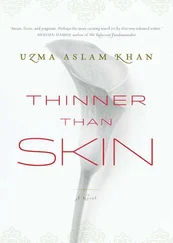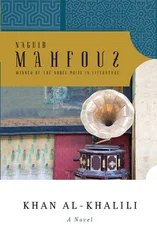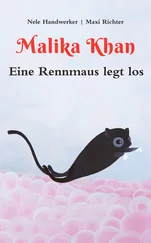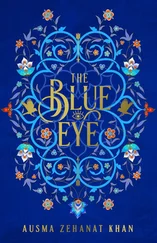‘Hello, darling,’ Riffat kissed her. ‘Sleep well?’ She stood with a clipboard in her hands, looking, as always, impeccable in a sleeveless tunic with purple embroidery down the seams, over a purple shalwar bleeding into violet. Her chin-length curls were soft and lush and her face glowed. No one would guess she was past fifty.
Normally Dia enjoyed bumping into her mother unexpectedly like this. But today she turned instead to Sumbul. ‘What did I miss?’
Sumbul looked pleased and guilty.
Sana carefully lifted the female and carried her into the next room.
‘She’ll be the first mother of the next batch,’ announced Riffat, jotting down notes.
‘No!’ said Dia.
Sumbul nodded. ‘I saw them chew their way out and then immediately, their tails pinned together. They stayed that way for three hours! They only pried loose about ten minutes ago,’ she added, and then covered her mouth quickly with her hands. ‘I shouldn’t have said that! Now you’ll just feel worse.’
Dia stared at the remaining male. ‘After keeping me waiting all that time, couldn’t you have waited?’
Sumbul and Riffat smirked, exchanging glances. ‘They never do.’
They left the safe environment of the farm, crossed the troubled province in an armed escort vehicle, and within two hours arrived securely home. Although the tension linking these points had killed her father, it barely grazed Dia or Riffat. Sometimes Dia wondered if this immunity was really a privilege. Didn’t all shelters fracture one day? And if so, shouldn’t the signs be more visible?
The two walked up the winding driveway. At the fountain, they turned into the arbor, and Dia decided her uneasiness was nothing more than the disappointment of missing the birth of the moths. And of course, her disappointment with Nini. She tried to push her friend out of her thoughts. ‘I smell pakoras.’
‘Mm,’ said Riffat. ‘I love it when Inam Gul spoils us.’
They ducked under the trellis of jade vine, and the path widened to a ring of laburnum trees. In the center stood a glass-top table glittering in the evening sun like a pink topaz, arranged with hot refreshments and a tall jug of chilled almond juice. The cook was obviously in a good mood today; tea varied in complexity depending on his whim. At his best, he served an assortment of sweetmeats and savories in Riffat’s finest dishware, adopting the debonair style he claimed had been his trademark in younger days. (When you were a fisherman? Dia would ask, but he’d ignore her.) At other times he’d barely remember to make tea at all, and complain if reminded.
Now he held out a chair and napkin for each. ‘Tea is on its way,’ he announced, marching back into the kitchen.
‘You never know when it’ll hit him,’ laughed Riffat, pouring juice for Dia.
While she sipped it, Dia found she could not banish Nini from her thoughts. On Tuesday, Nini would go on display. The same Nini who’d so carelessly dismissed Dia’s mother: Where do dreams get us? If you’re not careful, you’ll end up lonely, like …
Not only had Nini spoiled Dia’s chance to see the moths, but she forced Dia to hear again the remarks others aimed at Riffat.
When her husband died, Riffat’s in-laws had taken over management of the factory, but she hadn’t let them take over her farm. She hadn’t listened when they said she needed to spend more time with the newly orphaned children. She hadn’t changed her routine. Her brother-in-law, whether out of kindness or malice, urged the family to let her be. ‘She will have fans but no friends,’ he declared. He’d been right. That was the price a proud woman had to pay.
Dia alone looked close enough to see the signs of wear: sometimes, when Riffat’s ulcers made her wince, she forgot to color the gray roots of her curls or conceal the bags under her eyes. And sometimes, her efficacy revealed cracks — instead of studying her notes on farm productivity, like Dia, she was seen gazing dreamily at butterflies and clouds.
But she recovered quickly, so to others she was the same fashionable Riffat who undertook any endeavor by first looking beyond it, then setting about getting firmly there. When she walked down the street, men and women ogled, but not because they wanted to caress her. They wanted to stop her. They were unwilling to accept that every obstacle made her chin rise higher.
In contrast, Dia was easily benumbed. She did not know what would happen on Tuesday. Nor was she able to decide what ought to happen — should the boy hate Nini? Should she produce another prank? How was she to get Nini back?
Riffat would have a plan, and unlike Dia’s disastrous one at the Quran Khwani, hers would not leak. How she wished for her mother’s strong nerves and sense of purpose, intimidating as it was!
They were different even to look at, sharing no features except the hooked nose. Dia was short with straight hair and light brown eyes; her mother was tall and wore her hair in a short, curly crop. Instead of Riffat’s strong jaw and high cheekbones, Dia’s face was oval and her cheek soft. When Dia walked down the street, even though most considered her too dark to be pretty, men always tried to touch her. At such times she wished her mother had rubbed some of her stoniness on to her.
But, thought Dia, the best thing about her mother was that she never tried to make Dia more like herself.
Inam Gul served the tea.
‘Thank God there was no strike today,’ said Riffat. ‘Or we’d still be at the farm.’ Conversation turned to the family. Dia’s lovesick brother Hassan was unable to snap out of it. The girl was obviously not interested. What should they do?
‘Send him to the Arctic,’ offered Dia, burying herself in ghee.
‘He may as well already be there,’ Riffat sighed. ‘I hope Amir visits this winter. Maybe Hassan needs a man-to-man talk.’
‘So what does Amir have to do with it?’
‘Come on now.’ She plucked a samosa.
Dia looked up. ‘The doctor said no.’
‘Well, don’t tell him then.’
When the forbidden food was consumed, Riffat spoke of one of her sisters, who visited from Islamabad the day Dia had been adorning Nini’s back with silkworms. ‘I’ve been meaning to ask where you went. We rushed back from the mill and Erum was so disappointed to find you gone. Inam Gul said Nissrine picked you up. But you haven’t said a thing about it?’
Dia mumbled, ‘Yes. She took me somewhere.’
‘That awful?’
‘Don’t ask.’ Dia’s appetite began to diminish. ‘Well, all right. Nini wanted me to attend a Quran Khwani.’
‘A Quran Khwani? Who died?’
‘The father of a boy her mother wants her to marry.’
‘No!’ Riffat gasped. ‘So young. Barely twenty, poor child.’
‘You’d think,’ Dia fumed, ‘she, of all people, wouldn’t settle for being “a poor child”. She has options. She could refuse. But can’t you just see her ten years from now? Cranky kids, husband away, long-suffering eyes. I’ll hate her then, Ama. I’ll hate her because she’ll be just another woman pretending she had no choice.’ Dia stopped. At last, she had voiced her worst fear out loud: I’ll hate her.
‘She could refuse,’ Riffat pondered. ‘But at what cost?’
‘At any cost.’
‘Calm down, darling. You’re young. You’ve no idea how hostile society gets if you challenge it.’
‘I’ve some idea — through you.’
A fleeting sorrow shot through Riffat’s eyes, but faded quickly. ‘True again, though that’s still not enough of an idea. For your sake, I hope it never is. Anyway,’ she added with a smile, ‘I’m always on your side, whatever you choose. And whatever others say about it.’
Читать дальше
Конец ознакомительного отрывка
Купить книгу












